This World Environment Day, let’s stay away from making tall promises. Instead, focus on making five small yet, vital changes in our daily life to decrease pollution and help save the environment
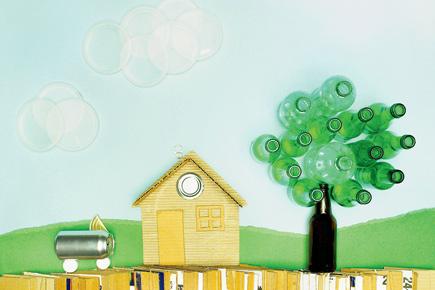
World Environment Day
 #1 Make/buy compost
#1 Make/buy compost
Dirt, a waste management and upcycling store at Bandra stocks Composting Drums that can be jointly bought by several families. The drums can be placed in the building compound. All you need to do is keep filling the drum with wet and dry biodegradable waste every day and rotate it twice a day. In a month, you’ll find the waste turned into compost that can be used to grow trees in the building. A drum set of two rotatable 100 litre drums on an MS frame can be used by 10 to 12 families.
At: Dirt, Belvedere building, 18, Rebello Road, opposite Supari Talao ground, Bandra (W).
Call: 9833750145
ADVERTISEMENT
Cost: Rs 10,000
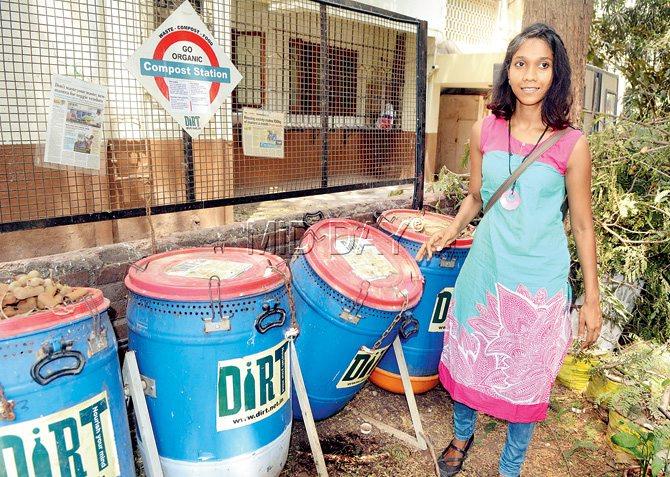
Composting drums at the Dirt Store in Bandra (W). Pic/Sayed Sameer Abedi
#2 Use biodegradable plastic bags
Plastic home truths: According to the 2014 Environment Status Report by Brihanmumbai Municipal Corporation, Mumbai reportedly adds nearly 700 MT of plastic to its garbage dumped in landfills across the city every day. While it’s not possible to bring a total ban on plastic bags, Mumbaikars can contribute by using compostable biodegradable garbage bags. A city-based company called Lucro offers biodegradable garbage bags under the brand name Eco Pro.
How it works: Made from cornstarch, these plastic bags have a special enzyme that speeds up the decomposing process. While normal plastic takes between 50 to 500 years to decompose naturally, according to Lucro head, Avijit Parekh, Eco Pro bags decompose into water, carbon dioxide and compost in between 240 days to 3 years.
These bags are available in three sizes: 19-inch x 21-inch (pack of 30 for Rs 64), 25-inch x 30-inch (pack of 15: Rs 69), and 30-inch x38-inch (pack of 10: Rs 79). These bags cost Rs 10-15 more than regular garbage bags .
Where to buy: Bigbasket.com
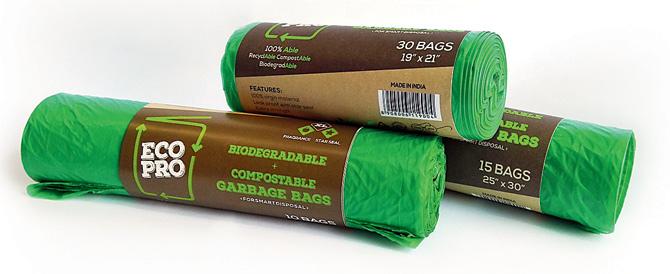
Compostable garbage bags by Lucro
#3 Use soap nuts instead of detergent
Why are detergents harmful? Washing clothes in detergent makes them sparkling clean, but it has been proven that they also pollute the environment. Not only do they consume lot of water, but contain phosphates that contaminate ground water as well as harm aquatic lives in the sea too.
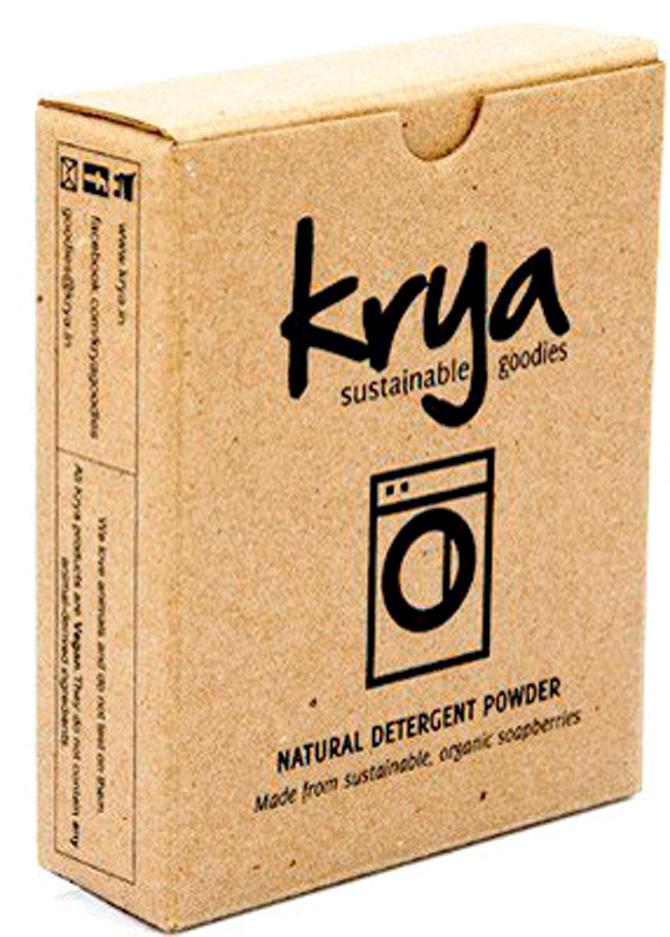
A 400 gm pack of reetha powder by Krya costs Rs 290
The alternative: One can opt for a natural ingredient called soap nuts, better known as reetha, to wash clothes. Reetha contains saponins that clean and wash. When it comes in contact with water, it creates suds that are similar to soap. Since reetha is an organic ingredient, it’s biodegradable and non-polluting. “It doesn’t produce foam like detergents nor does it add any flowery smell, but clothes washed with reetha are allergy-free, last longer and retain their natural softness,” says Danesh Madon, director, Eaternal India, an Indian exporter of soap nuts. Soap nuts are available in powder and shells.
How to use? Place the soap nut shells inside a muslin bag, tie it up and wash it along with clothes.
Cost: Soap nut shells (Rs 120-140/kg); Reetha powder (by Krya (Rs 290/400 gm) At Eaternal India, B2 Rustom Baug, SS Marg, Byculla.
Call: 65200541
Log on to: Krya.in (reetha powder)
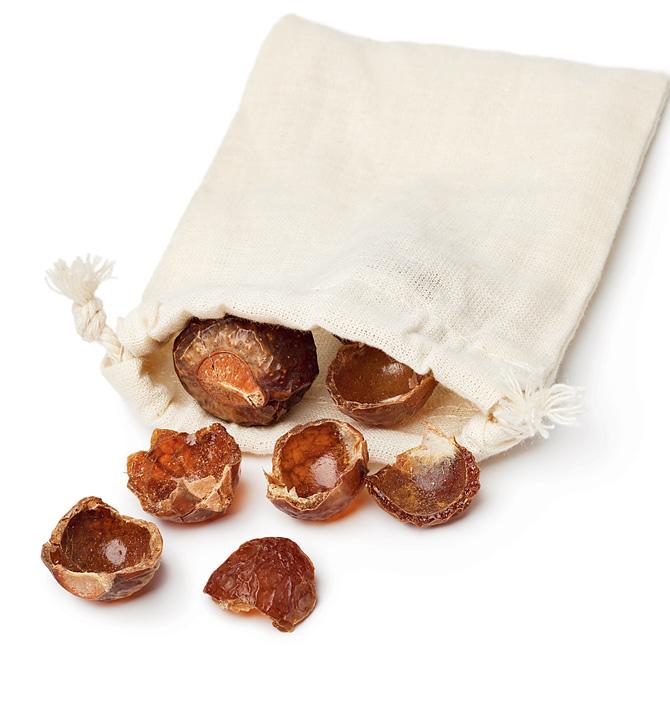
#4 Recycle e-waste responsibly
Why recycle? For most of us recycling means discarding unused items like plastic bottles, newspapers and electrical and electronic items to scrap dealers. Sounds smart, right? Not quite. Old electronic or electrical items such as PCs, laptops, TVs, monitors, or other electronic gadgets, referred to as e-waste, if not disposed properly, might cause serious health and environment hazards. Items like CRT monitors and batteries contain toxic and hazardous substances like mercury, lead, cadmium and chromium among others, and can affect ground water, the environment and human health. A recent report by the United Nations Environment Programme places India as fifth largest producer of e-waste. Another study reveals Mumbai as the largest producer of e-waste in the country. So, if you have an unused electrical/electronic item, don’t recycle but recycle responsibly.
How to recycle responsibly: Most electrical/electronic devices have components that can be recycled if reused/resold by the right people. Contact a licensed e-waste dismantler or recycler such as Karma Recycling (old smart phones, tablets) and get paid for old devices. You can also speak to the manufacturer to take the device back.

#5 Save electricity
Electricity matters Electricity generation in power plants consumes energy, majority of that is sourced from either coal or petroleum products like diesel. Each time you leave the fan or light on, or leave a mobile adapter attached to the power point, it’s polluting the air and water at some level, and bringing the earth closer to doom. So, lets make it a point to turn of any equipment not in use, and if possible, use low-electricity consuming options such as LED bulbs. It’s been proven that LED bulbs consume less electricity. Though they are expensive, but the amount you will save on the electricity bill might be worth it.
How to buy the right LED: Wattage is always low. What matters in LED light bulbs is their luminosity measured in lumens (lm). Higher the lumens greater is the brightness.

 Subscribe today by clicking the link and stay updated with the latest news!" Click here!
Subscribe today by clicking the link and stay updated with the latest news!" Click here!







